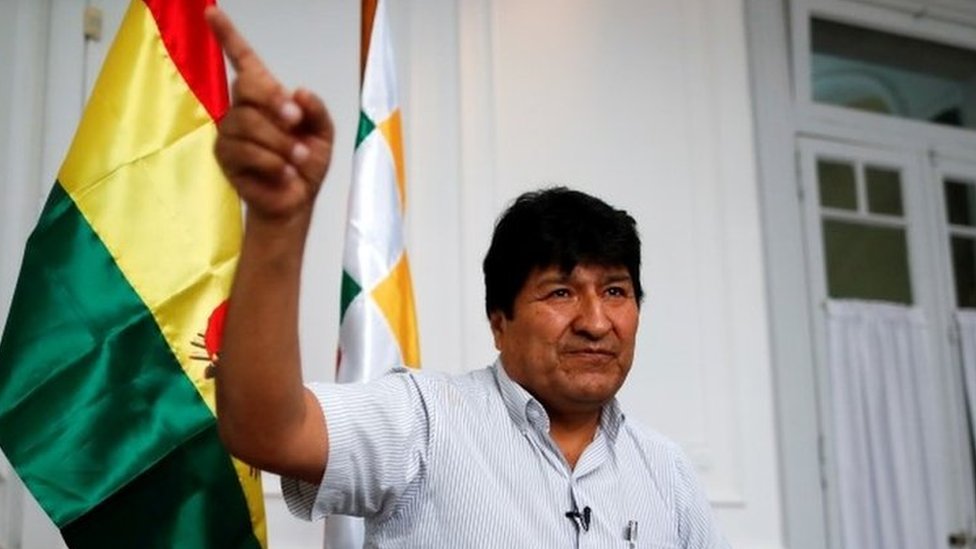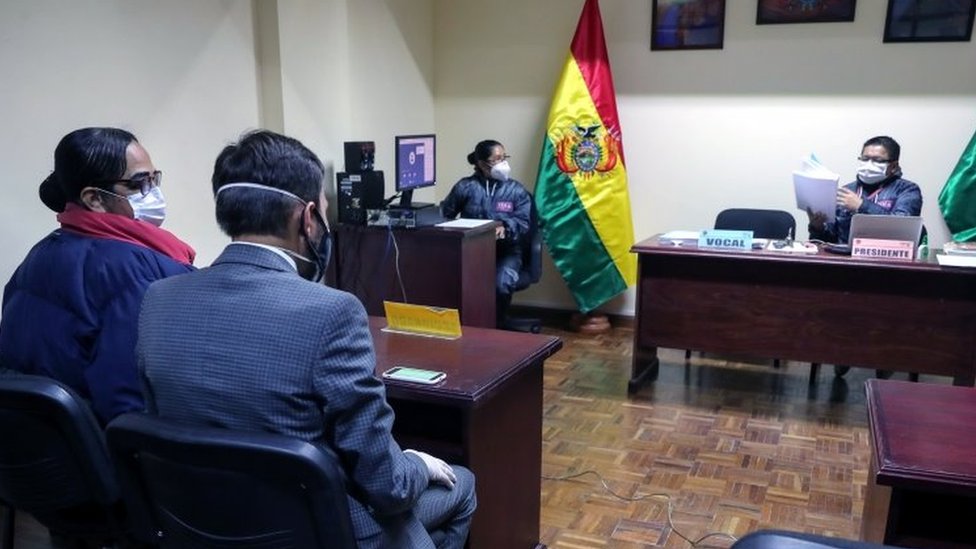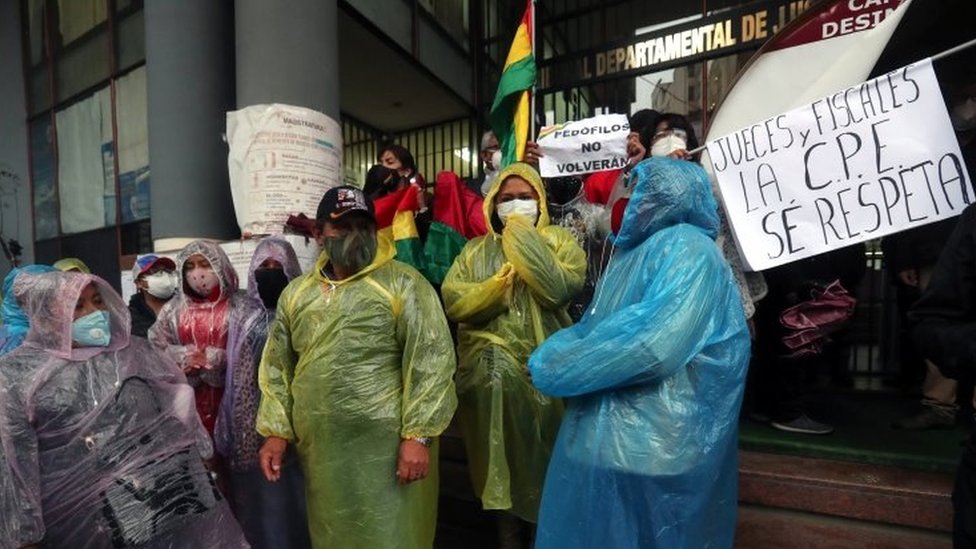Tuesday, September 8, 2020
When you have no productive skills being a politician is all you've got
REUTERS
A judge in Bolivia has upheld a decision by the electoral tribunal barring former President Evo Morales from running for the senate.
Mr Morales wanted to stand as a candidate for the senate in the central region of Cochabamba.
But the tribunal ruled in February that he did not fulfil the requirement of having resided in the region for the two years leading up to the poll.
Mr Morales left Bolivia in November and is currently living in Argentina.
In February, the supreme electoral tribunal disqualified Mr Morales, saying that he did not meet residency requirements because he lived in Argentina.
EPA
Mr Morales appealed against the decision, arguing that he was still officially registered in Cochabamba and that he was not living in Argentina out of choice, but out of concern for his safety.
The government of interim President Jeanine Áñez, which has been in power since Mr Morales resigned, is vehemently opposed to the former leader and has said that she wants him "to face justice".
It has accused him of "terrorism and genocide", saying he had orchestrated 12 days of roadblocks which had caused hospitals to run low on key supplies.
It had earlier accused him of "terrorism and sedition" in connection with the unrest following the disputed election last year, and the deputy justice minister filed a complaint against Mr Morales over allegations he committed statutory rape.
A court in Cochabamba is currently weighing the complaint and has 20 days to decide whether the case has enough merit to proceed.
Mr Morales has denied all the allegations and says he is the victim of a political vendetta by the interim government.
Evo Morales served as Bolivia's president for almost 14 years, from 2006 to 2019, after winning three consecutive elections.
EPA
In October 2019, he ran for a fourth consecutive term as president. Up until then, Bolivian leaders had been limited in the number of times they could run for the top job.
But Mr Morales had for years been suggesting that those term limits be dropped.
In 2016, he asked Bolivians to vote on the issue in a referendum. The result was a "no" to abolishing term limits.
But Mr Morales' party took the issue to the constitutional court, which annulled the result of a referendum and scrapped the term limits, thereby allowing him to run for president in the 2019 election.
He was officially declared the winner of the 2019 election, but protests erupted when the vote count was halted for 24 hours, prompting allegations of vote-rigging.
The protests continued for weeks - fuelled both by anger that he ignored the referendum result and the allegations of vote-rigging - and both the head of the army and of the police joined calls for Mr Morales to step down.
He resigned on 10 November and shortly afterwards left for Mexico, from where he later moved to Argentina.
A re-run of the disputed general election was rescheduled for May 2020, but has been postponed twice to the month of October due to the coronavirus pandemic.
Mr Morales has not given up on his electoral ambitions and registered as a candidate for the senate for the region of Cochabamba.
Mr Morales cannot appeal against the decision to bar him from the election. He said on Twitter that he would abide by the decision taken by the judge, arguing that his priority was for "the people to emerge from the crisis".
He said he was confident that "the time would come when the people would again govern themselves in a democratic and peaceful way".
A member of Mr Morales' party, economist Luis Arce, is running for president, and opinion polls suggest he is the front-runner.
Ms Áñez is also running, but opinion polls suggest she is behind Mr Arce's main rival, Carlos Mesa.
The election is scheduled for 18 October.
Subscribe to:
Post Comments (Atom)







No comments:
Post a Comment